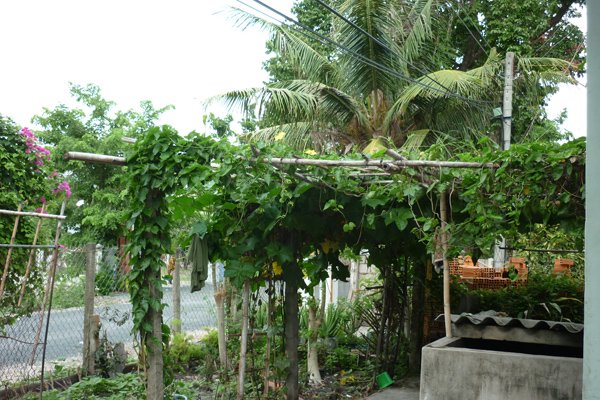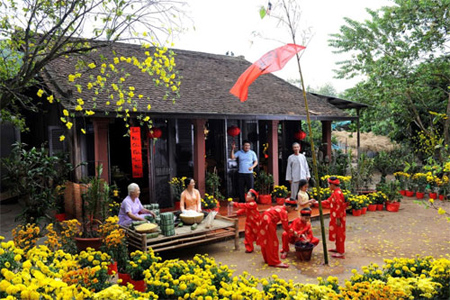I have met, in Paris and Marseilles, Vietnamese in their sixties or seventies who left the country before World War II. They recalled fond memories of the homeland while voicing the concern that to their grandchildren, the Third Generation, Vietnam may well become just another geographical name.
The some feelings are shared by "boat people" of a certain age in the United States. I was aware of this when I read an article in the Vietnamese language titled "In Search of Roots" by Bui Bao True, who referring himself to Roots by Alex Haley, a Black American who made a pilgrimage to Africa in search of identity, writes: "I imagine myself, twenty or thirty years from now, walking unsteadily, leaning on a walking stick. I see my grandson in the company of an American girl and he waves a Hello! to me. The girl asks who’s that Chinese guy you just said Hello to? That will be very sad. But it will be sadder still if my grandson says: He aint no Chinese He’s from a place called Vietnam or something...

"Our children grow up here and we try to keep something of Vietnam for them. Keeping it in order to lessen our sorrow and our frustration. But the children what do they know about Vietnam to make them feel attached as we are attached, to the country? For us, the faintest smell of leaf mould after the rain may bring tears to our eyes because it reminds us of Saigon. An air of Vong co heard in the evening may keep us awake the whole night. The Ngoc Lan tree by the well at the back of the house, the fragrance of the Thien Ly flowers in the morning air pattering of rain on the galvanized IRON roof, the voices of street hawkers at midday in summer, the rustling of bougainvillea on a moonlit night. Memories of all that may make us crazy.
"The new Vietnamese generations may not have to face all the difficulties Alex Haley had to surmount if they want to trace their roots to Vietnam... The question is whether or not they want to do that. Or should we ourselves return to the native country when our hair has already turned white. Village kids will laugh at the sight of a poor old man asking his way, speaking with a stammer, just like in a poem by Ha Tri Chuong of the Tang Dynasty:
"Going away young I returned when very old my local accent hadn’t changed but my hait was all gone. The children I saw did not know me ‘Respected visitor, where do you come from?’ they queried."
I'm no overseas Vietnamese and I have my own question: "In the face of the frantic onslaught of a market economy and a pitiless modernism what should be done to save our genuine traditional values?"



